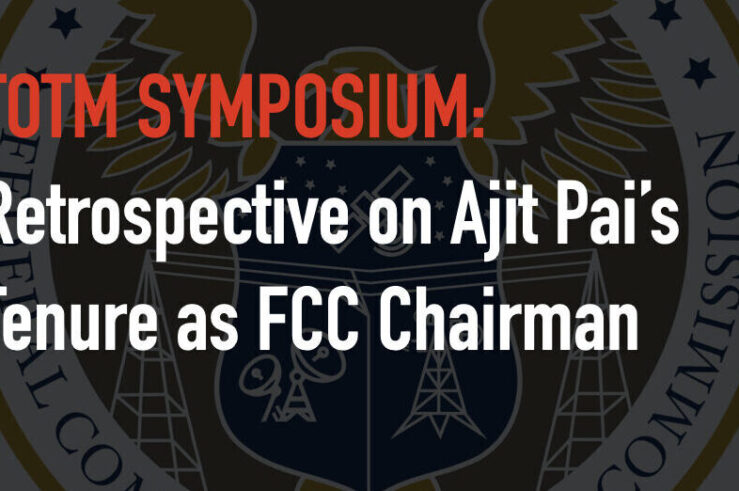Showing archive for: “Securities Regulation”
Antitrust at the Agencies Roundup: The Cat’s Tuches of Summer Edition
I had thought we were in the dog days of summer, but the Farmer’s Almanac tells me that I was wrong about that. It turns out that the phrase refers to certain specific dates on the calendar, not just to the hot and steamy days that descend on the nation’s capital in . . . ... Antitrust at the Agencies Roundup: The Cat’s Tuches of Summer Edition
After the FTX Crash, What’s Next for Crypto?
For many observers, the collapse of the crypto exchange FTX understandably raises questions about the future of the crypto economy, or even of public blockchains as a technology. The topic is high on the agenda of the U.S. Congress this week, with the House Financial Services Committee set for a Dec. 13 hearing with FTX ... After the FTX Crash, What’s Next for Crypto?
The Market Challenge to Populist Antitrust
The wave of populist antitrust that has been embraced by regulators and legislators in the United States, United Kingdom, European Union, and other jurisdictions rests on the assumption that currently dominant platforms occupy entrenched positions that only government intervention can dislodge. Following this view, Facebook will forever dominate social networking, Amazon will forever dominate cloud ... The Market Challenge to Populist Antitrust
Does the Market Know Something the FTC Doesn’t?
During the exceptional rise in stock-market valuations from March 2020 to January 2022, both equity investors and antitrust regulators have implicitly agreed that so-called “Big Tech” firms enjoyed unbeatable competitive advantages as gatekeepers with largely unmitigated power over the digital ecosystem. Investors bid up the value of tech stocks to exceptional levels, anticipating no competitive ... Does the Market Know Something the FTC Doesn’t?
Chairman Pai’s Organizational Legacy
One significant aspect of Chairman Ajit Pai’s legacy is not a policy change, but an organizational one: establishment of the Federal Communications Commission’s (FCC’s) Office of Economics and Analytics (OEA) in 2018. Prior to OEA, most of the FCC’s economists were assigned to the various policy bureaus, such as Wireless, Wireline Competition, Public Safety, Media, ... Chairman Pai’s Organizational Legacy
Let’s (NOT) Stop All the Mergers: The Case for Letting the Agencies Do Their Jobs
Never let a crisis go to waste, or so they say. In the past two weeks, some of the same people who sought to stop mergers and acquisitions during the bull market took the opportunity of the COVID-19 pandemic and the new bear market to call to ban M&A. On Friday, April 24th, Rep. David ... Let’s (NOT) Stop All the Mergers: The Case for Letting the Agencies Do Their Jobs
Buyback Backlash: Is the Ban Non-binding?
[TOTM: The following is part of a blog series by TOTM guests and authors on the law, economics, and policy of the ongoing COVID-19 pandemic. The entire series of posts is available here. This post is authored by Eric Fruits, (Chief Economist, International Center for Law & Economics).] The Wall Street Journal reports congressional leaders have agreed to ... Buyback Backlash: Is the Ban Non-binding?
What Can the Stock Market Tell Us About the T-Mobile/Sprint Merger?
On Monday evening, around 6:00 PM Eastern Standard Time, news leaked that the United States District Court for the Southern District of New York had decided to allow the T-Mobile/Sprint merger to go through, giving the companies a victory over a group of state attorneys general trying to block the deal. Thomas Philippon, a professor ... What Can the Stock Market Tell Us About the T-Mobile/Sprint Merger?
Balancing competition and innovation in the drug industry: An evaluation of current proposals.
Last week the Senate Judiciary Committee held a hearing, Intellectual Property and the Price of Prescription Drugs: Balancing Innovation and Competition, that explored whether changes to the pharmaceutical patent process could help lower drug prices. The committee’s goal was to evaluate various legislative proposals that might facilitate the entry of cheaper generic drugs, while also ... Balancing competition and innovation in the drug industry: An evaluation of current proposals.
The Hatch-Waxman Integrity Act of 2018—Reestablishing Balance in the Drug Industry
Last week, Senator Orrin Hatch, Senator Thom Tillis, and Representative Bill Flores introduced the Hatch-Waxman Integrity Act of 2018 (HWIA) in both the Senate and the House of Representatives. If enacted, the HWIA would help to ensure that the unbalanced inter partes review (IPR) process does not stifle innovation in the drug industry and jeopardize ... The Hatch-Waxman Integrity Act of 2018—Reestablishing Balance in the Drug Industry
More Evidence Against the Common Ownership Problem
I posted this originally on my own blog, but decided to cross-post here since Thom and I have been blogging on this topic. “The U.S. stock market is having another solid year. You wouldn’t know it by looking at the shares of companies that manage money.” That’s the lead from Charles Stein on Bloomberg’s Markets’ ... More Evidence Against the Common Ownership Problem
Calm Down about Common Ownership
“Calm Down about Common Ownership” is the title of a piece Thom Lambert and I published in the Fall 2018 issue of Regulation, which just hit online. The article is a condensed version our recent paper, “The Case for Doing Nothing About Institutional Investors’ Common Ownership of Small Stakes in Competing Firms.” In short, we ... Calm Down about Common Ownership











